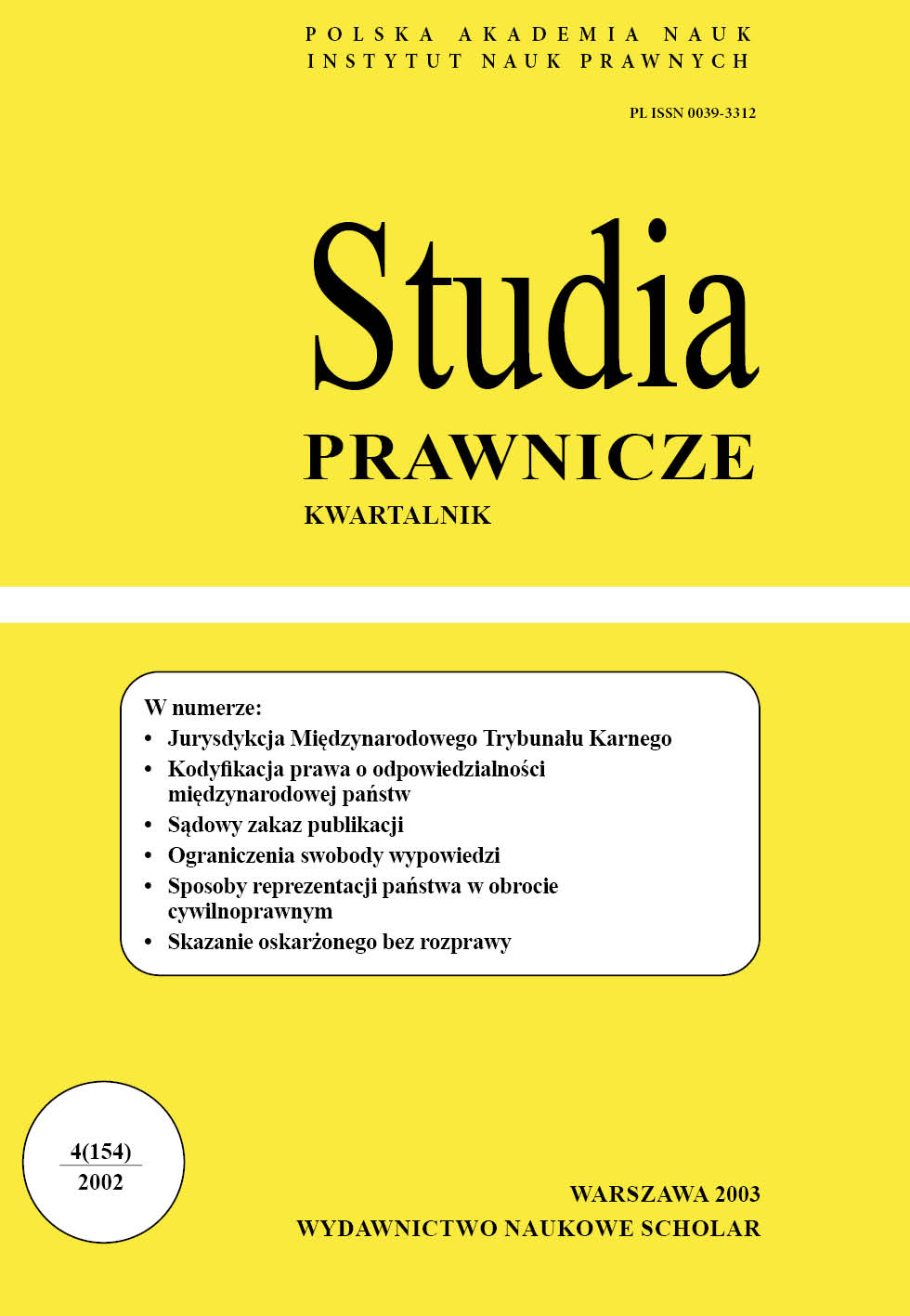Jurysdykcja Międzynarodowego Trybunału Karnego
Jurisdiction of the International Criminal Court
Author(s): Michał PłachtaSubject(s): Law, Constitution, Jurisprudence
Published by: Instytut Nauk Prawnych PAN
Keywords: jurisdiction; International Criminal Court (ICC); crime against humanisty; war crime; crime of aggression
Summary/Abstract: At the conclusion of a session of historic importance to the entire international community (commonly referred to as the Rome Conference), the Diplomatic Conference of Plenipotentiaries on the Establishment of an International Criminal Court (ICC), the Statute of the Court was adopted in Rome on the night of 17-18 July 1998. By 31 December 2000 (the final date by which this international treaty was open for signature), 139 states had signed it. On 11 April 2002, the number of ratifications exceeded the threshold set by the Statute for its entry into force. This means that the Statute became effective on 1 July 2002. As of 10 February 2003. 89 States had ratified the Statute. Poland signed the Statute on 9 April 1999. However, ratification posed a number of problems due to the need to resolve the issue of the compatibility of certain provisions of the Statute with the 1997 Constitution. Although the request for ratification was submitted to the Sejm as early as December 2000, the law authorising the President of the Republic of Poland to perform ratification was passed by the Sejm on 5 July 2001, and was subsequently approved by the Senate in early August. In the Polish legal system, the legal and juridical language rarely uses the term 'jurisdiction' (the Code of Civil Procedure may be a certain exception), in the Polish language we would rather say ‘competence’ than jurisdiction. Therefore, the term needs to be clarified taking into account the specificity of the International Criminal Court. Jurisdiction should be construed as the right of a given authority to adjudicate a case that is not purely national but has an international element. Due to the international dimension of jurisdiction, it must be assumed that in this case the right to adjudicate a case arises as a result of a dispute of competence between two subjects of international law (states). The issue of criminal jurisdiction comes to the fore particularly when an authority is to rule on a foreign national. The traditional understanding of jurisdiction cannot be simply applied to the ICC. This definition needs to be modified. Firstly, in the case of the Court, the competence (jurisdictional) dispute is not between two states, but between an international body and a state. Secondly, the international aspect is revealed not by the nationality of the perpetrator but by the crime itself. Indeed, the Court will adjudicate on the most serious crimes of international importance. Thirdly, the dispute of competence between the parties is formalised, i.e. the rules and the procedure for its resolution are strictly defined in the Statute. It is also characteristic of the lack of equivalence between the State and the Court in this dispute. On the one hand, the state is in a privileged position, as it enjoys priority in the exercise of jurisdiction under the principle of complementarity. On the other hand, however, the overarching and dominant role of the Court as the body that will resolve the competence dispute is clearly in view. The subject of this study is only that part of the complex issue of the ICC's jurisdiction that concerns the clarification of its scope, in its various dimensions: subject matter, time and persons. One can speak here of the 'static elements' of the jurisdiction. Outside the scope of consideration is the mechanism for triggering jurisdiction, that is, the question of initiating and continuing proceedings before the Court or its authorities. Similarly, they can be referred to as the 'kinetic elements' of the jurisdiction.
Journal: Studia Prawnicze
- Issue Year: 154/2002
- Issue No: 4
- Page Range: 5-32
- Page Count: 28
- Language: Polish

